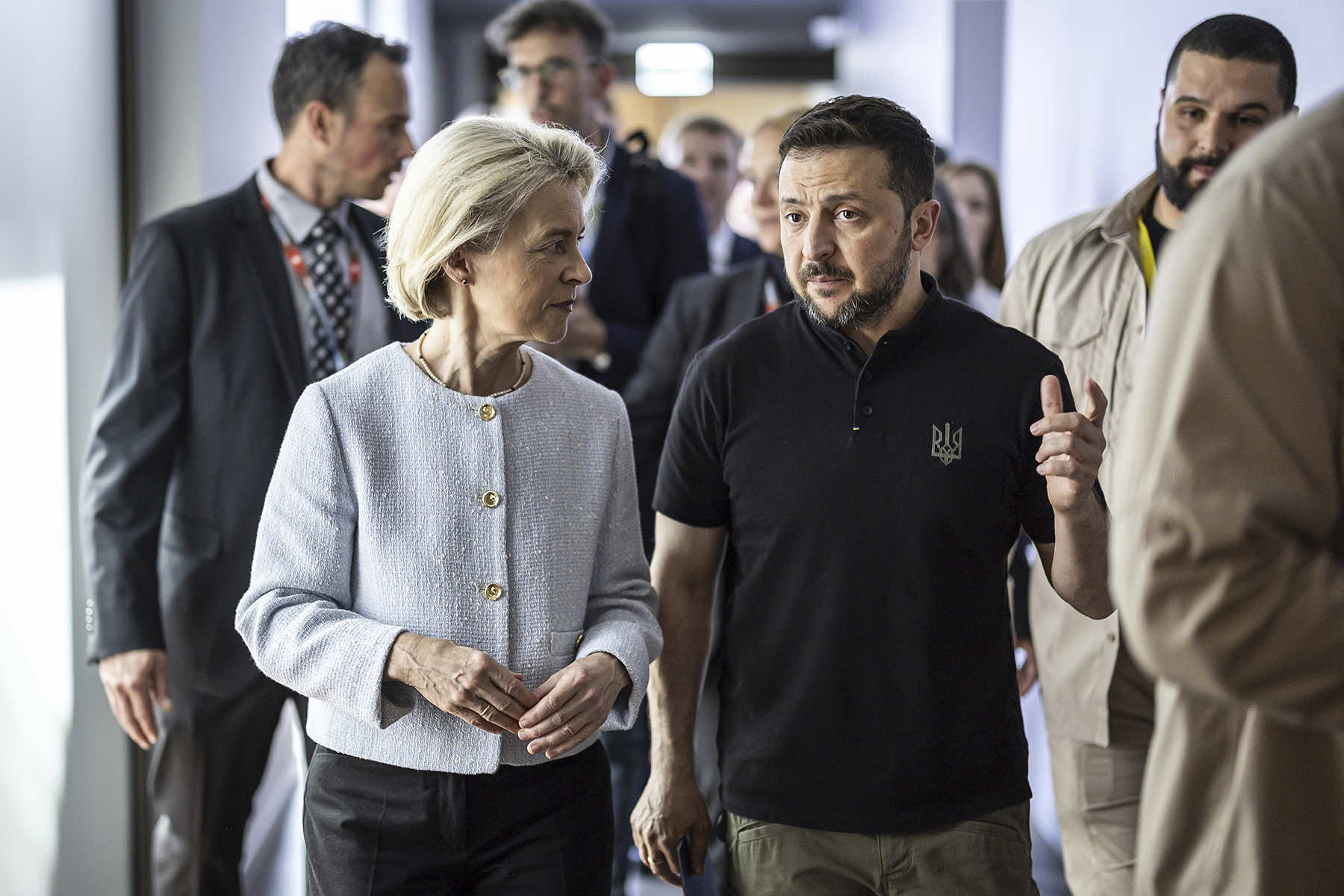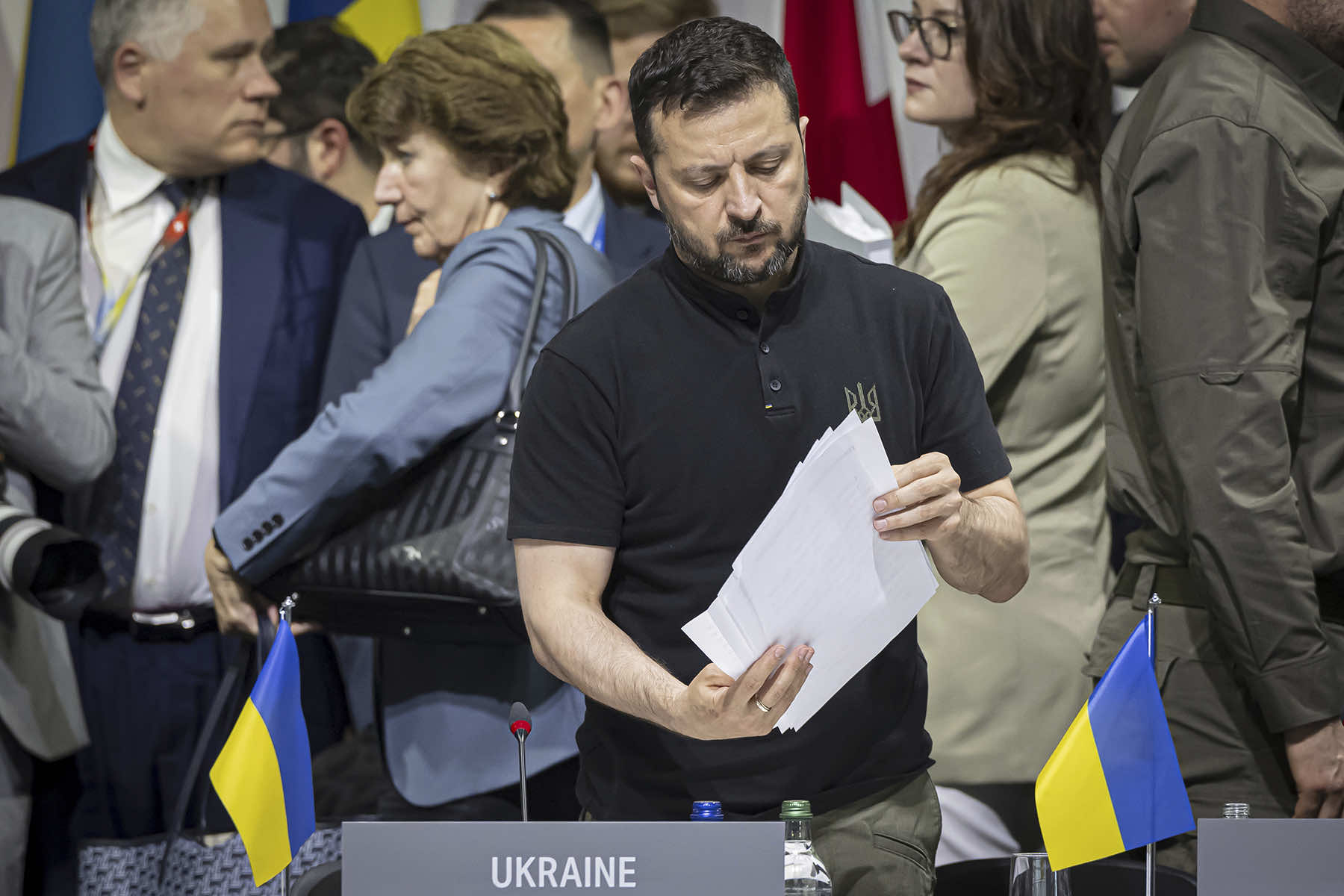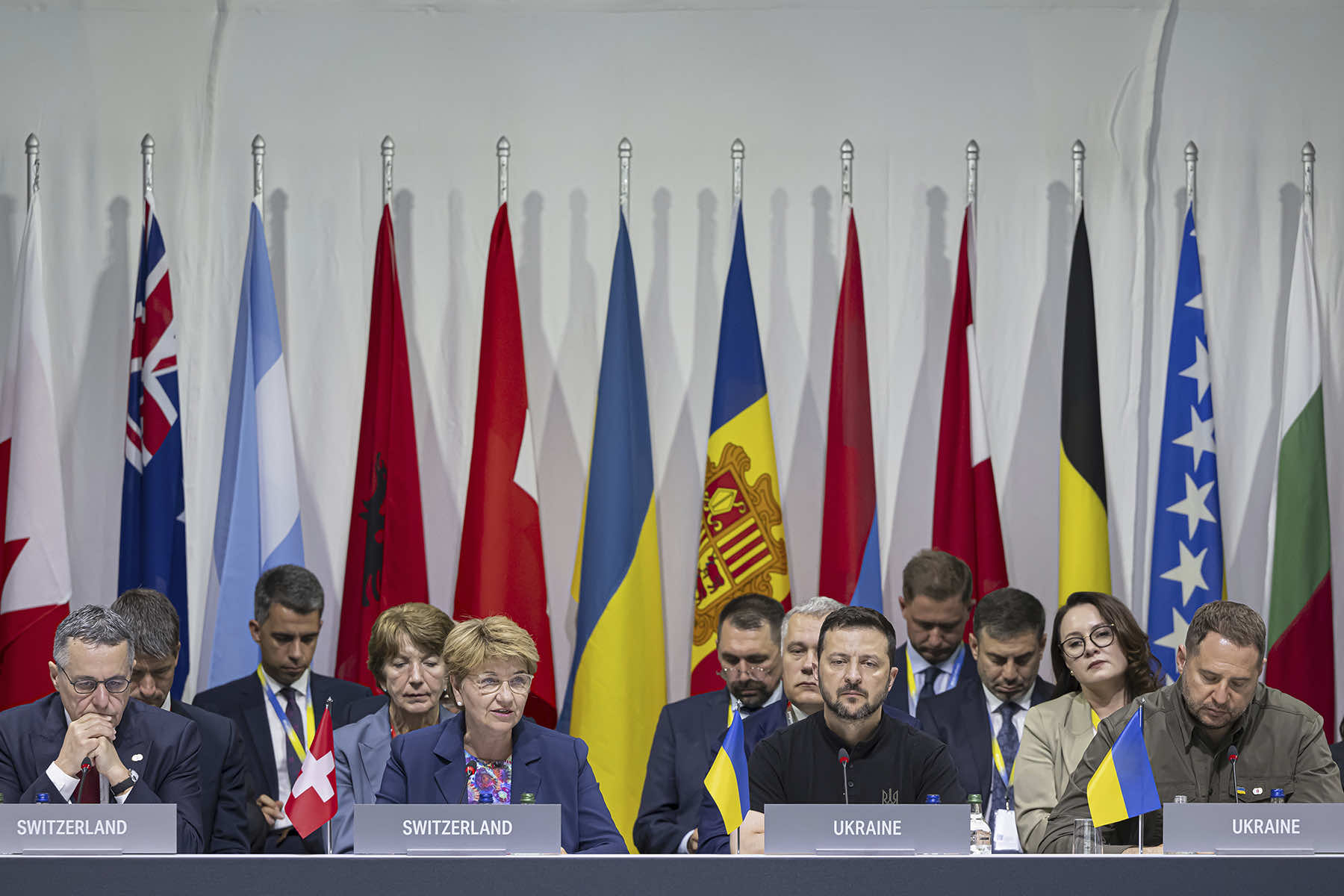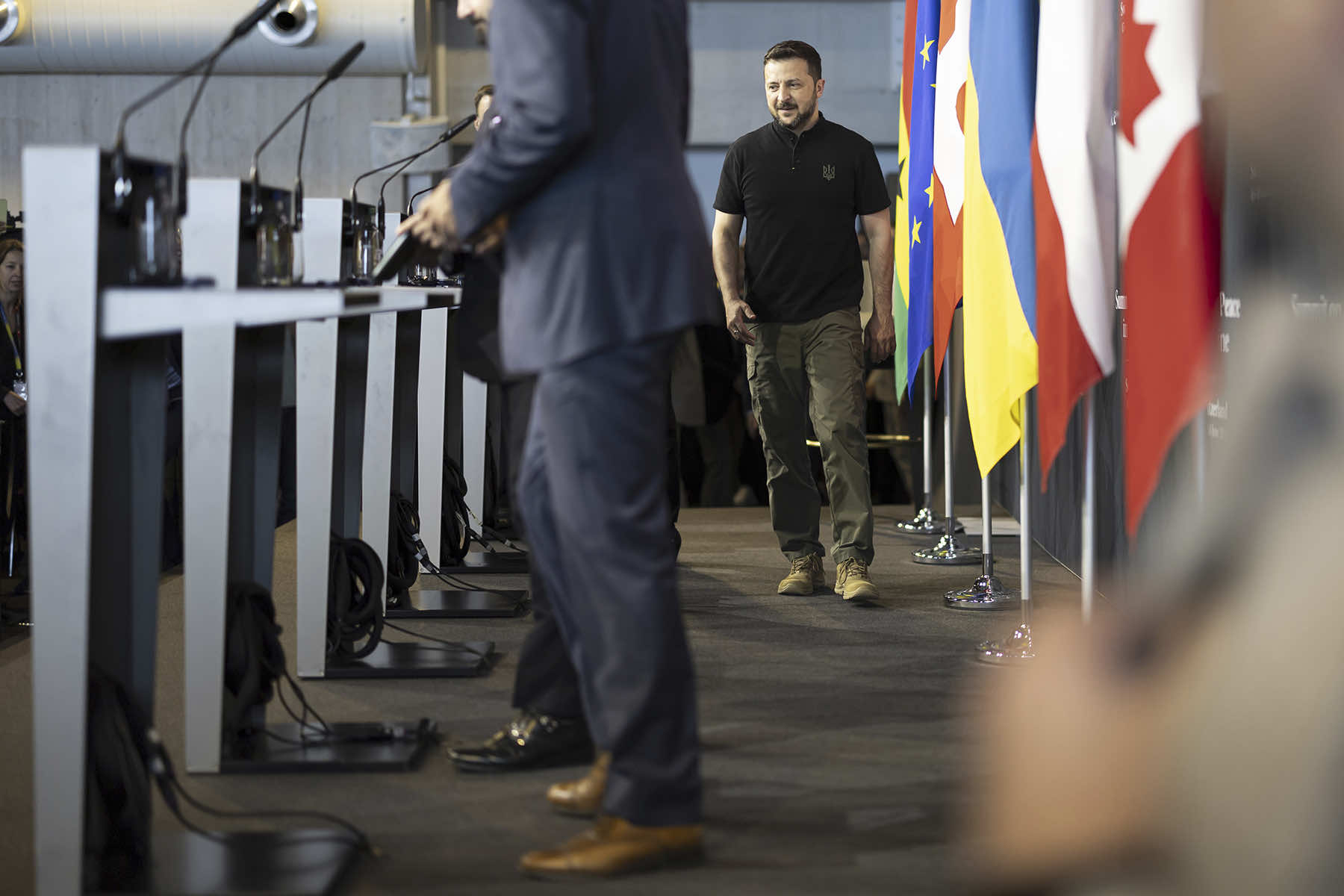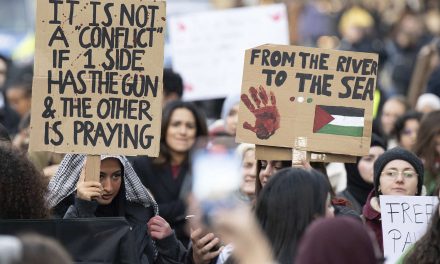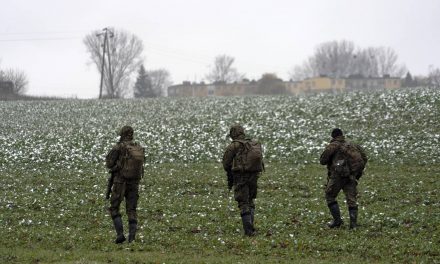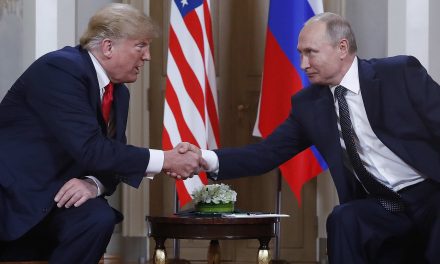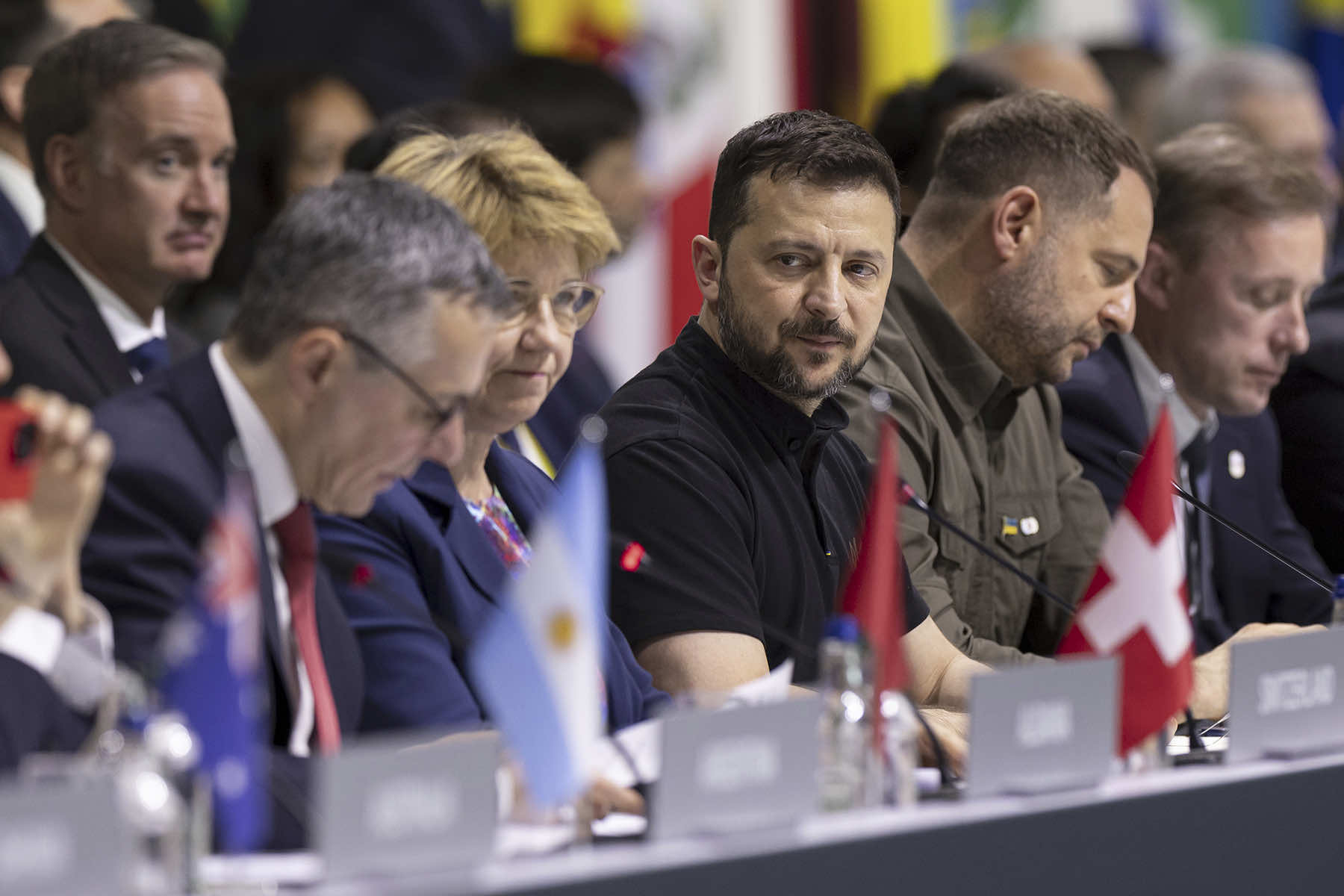
Eighty countries called for the “territorial integrity” of Ukraine on June 16 to be the basis for any peace agreement to end Russia’s two-year war, though some key developing nations at a Swiss conference did not join in. The way forward for diplomacy remains unclear.
The joint communique capped a two-day conference marked by the absence of Russia, which was not invited. Many attendees expressed hope that Russia might join in on a road map to peace in the future.
Since Russia’s dictator, and war criminal wanted by the International Criminal Court, Vladimir Putin launched his brutal full-scale invasion of Ukraine in February 2022 his forces have killed or injured hundreds of thousands of people, unsettled markets for goods like grain and fertilizer, driven millions from their homes and carved a wedge between the West — which has sanctioned Moscow — and Russia, China, and some other countries.
About 100 delegations, mostly Western countries, attended the conference that was billed as a first step toward peace. They included presidents and prime ministers from France, Germany, Britain, Japan, Poland, Argentina, Ecuador, Kenya and Somalia. The Holy See was also represented, and Vice President Kamala Harris spoke for the United States.
India, Mexico, Saudi Arabia, South Africa, Thailand, and the United Arab Emirates — represented by foreign ministers or lower-level envoys — were among the countries that did not sign the final document, which focused on issues of nuclear safety, food security and the exchange of prisoners. Brazil, an “observer,” did not sign on but Türkiye did. China avoided attending.
The final document said the U.N. Charter and “respect for territorial integrity and sovereignty … can and will serve as a basis for achieving a comprehensive, just, and lasting peace in Ukraine.”
That has been a non-starter for Putin, who proposed a cease-fire in remarks just prior to when world leaders were scheduled to meet in Switzerland.
Ukraine’s Foreign Ministry called the dictator’s plan “manipulative,” “absurd,” and designed to “mislead the international community, undermine diplomatic efforts aimed at achieving a just peace, and split the unity of the world majority around the goals and principles of the U.N. Charter.”
Besides seeking to join NATO, Ukraine wants Russian forces out of its territory, including the Crimean Peninsula that was illegally annexed in 2014; the restoration of Ukraine’s territorial integrity; and that Russia be held accountable for war crimes and for Moscow to pay reparations to Kyiv.
Russia launched its full-scale invasion in February 2022. After Ukrainian forces thwarted a Russian drive to the capital, much of the fighting has focused in the south and east, where Moscow illegally annexed four regions, although it doesn’t fully control any of them.
U.S. Defense Secretary Lloyd Austin said at NATO headquarters in Brussels that Putin “has illegally occupied sovereign Ukrainian territory. He is not in any position to dictate to Ukraine what they must do to bring about a peace.”
Austin added that Putin “started this war with no provocation. He could end it today if he chose to do that.”
Viola Amherd, the Swiss president, told a news conference the “great majority” of participants who attended the conference agreed to the final document, which “shows what diplomacy can achieve.” Foreign Minister Ignazio Cassis said Switzerland would reach out to Russian authorities but did not say what the message would be.
Ukrainian President Volodymyr Zelenskyy hailed the “first steps toward peace” at the meeting and said Ukraine was in talks with some countries, which he did not name, that had offered to host a “second peace summit.” No timetable was laid out.
Zelenskyy earlier this month accused China, backed by Russia, of attempting to undermine the Swiss conference, a claim denied by Beijing.
Allies of Ukraine now face the task of trying to keep up momentum toward peace. Zelenskyy said national security advisers would meet in the future, and “there will be a specific plan” afterward.
Testifying to war fatigue and other preoccupations, only about half of U.N. member countries took part. It is a far cry from March 2022, when condemnation of Russia’s invasion led to passage of a non-binding resolution at the U.N. General Assembly by 141 countries calling for Russian troops to leave Ukraine.
It was not clear why some developing countries attending did not line up behind the final statement, but they may be hesitant to rankle Russia or have cultivated a middle ground between Moscow, its ally China, and Western powers backing Kyiv.
“Some did not sign — even though very few — since they are playing ‘Let’s have peace based on concessions’ game, and they usually mean concessions by Ukraine, and basically accommodating Russian demands,” said Volodymyr Dubovyk, a Ukraine expert and senior fellow at Center for European Policy Analysis, a Washington-based think tank. “They also like this ‘neutrality’ positioning.”
Dubovyk said the way forward for Ukraine was to receive aid — weapons and humanitarian assistance — that could improve its situation on the ground and thus give it a better negotiating position.
At the Swiss event, the challenge was to talk tough on Russia but open the door for it to join a peace initiative.
“Many countries … wanted the involvement of representatives of the Russian Federation,” Zelenskyy said. “At the same time, the majority of the countries do not want to shake hands with them (Russian leaders) … so there are various opinions in the world.”
Ursula von der Leyen, the president of the European Union’s executive Commission, said peace won’t be achieved in a single step and asserted that Putin isn’t serious about ending the war.
“He is insisting on capitulation. He is insisting on ceding Ukrainian territory — even territory that today is not occupied by him,” she said. “He is insisting on disarming Ukraine, leaving it vulnerable to future aggression. No country would ever accept these outrageous terms.”
Analysts suspected the conference would have little concrete impact toward ending the war because Russia, was not invited. China and Brazil have jointly sought to plot alternative routes toward peace.
Qatar’s prime minister, Sheikh Mohammed bin Abdulrahman Al Thani, said on June 15 that his rich Gulf country hosted talks with both Ukrainian and Russian delegations on the reunification of Ukrainian children with their families. It has so far resulted in 34 children being reunited.
The Ukrainian government believes that 19,546 children have been deported or forcibly displaced, and Russian Children’s Rights Commissioner Maria Lvova-Belova previously confirmed that at least 2,000 were taken from Ukrainian orphanages.
In Kyiv, at a regular demonstration by relatives of soldiers captured by Russia, the response to the Swiss gathering was muted.
“I would really like to believe that this (conference) will have an impact, but some very important countries did not sign the communique,” said Yana Shyrokyh, 56, whose army serviceman son has been in captivity since 2022. “I would really like them to find powerful levers of influence on Russia.”
Putin has insisted that Kyiv should withdraw from all four annexed regions entirely and essentially cede them to Moscow within their administrative borders. In Zaporizhzhia in the southeast, Russia still does not control the region’s administrative capital with a pre-war population of about 700,000; in the neighboring Kherson region, Moscow withdrew from its biggest city and capital of the same name in November 2022.
Moscow withdrew from Kyiv in March 2022 and described it as a goodwill gesture as peace talks between the two began, but the pullback took place amid fierce Ukrainian resistance that significantly slowed down Russia’s battlefield advances.
Ukraine’s military has been on the back foot in recent months, with its troops outnumbered by the Kremlin’s forces and running short of ammunition and weaponry due to delays in promised Western military aid.

